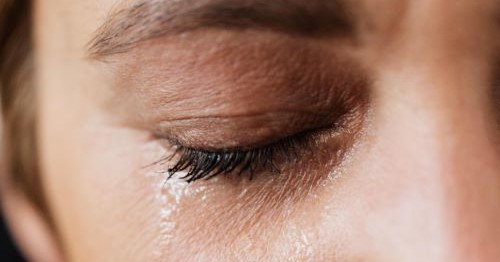Symptoms of depression for patient or family/relatives:
you may feel exhausted, permanently tired
you gradually lose your energy, vitality, appetite for life
you wake up more tired than you went to bed
you no longer have the strength, the drive for your current activities, which you do with difficulty, slowly, partially or not at all
feelings of worthlessness or excessive and inappropriate guilt, which may be delusional and not just self-reproach or guilt related to being in pain
initially there may be vague feelings of inadequacy, of not being „good enough” as a husband/wife, of not being good at work/failing a project of being wrong towards certain relatives/friends then gradually there are worries about certain situations in life, where they would think they made the wrong choice, that they „shouldn’t have…”
that he’s/she’s guilty of the difficulties in other people’s lives
that it is useless/”good for nothing”
thinks he/she is, „a burden”, thinks „others would be better off without me”, that his/her existence „hurts others”
Some people can hardly stand the drop in energy and become irritable, nervous and others look for other illnesses to explain this fatigue.
Sometimes they blame themselves for the problems of the whole world.
Considers himself/herself „the greatest sinner”, that he will be punished by God, in severe cases losing touch with what may be real (delusional idea)
Sometimes the person may have hallucinations, which may or may not be congruent with the mood. That is, the patient can see, hear, feel things that do not exist in reality and that may or may not be related to sadness. For example, an elderly woman may see her husband (dead for many years) calling her to come to her bedside, or she may hear a voice talking to her in the street, with no one there.
In severe cases, the person may have delusions, with or without a connection to sadness. That she is being stalked, that someone wants her dead, is poisoning, persecuting or harming her or someone close to her. That she is possessed, that she is talked about, that she is guilty of the misfortunes of others. That she is a sinner, that she will be poor, that she or those close to her will die of serious illnesses, etc. Rarely, delusions of size, grandeur, mysticism, etc. (expansive delusions) may occur.
Sometimes it happens that the family does not notice that the person has been sad for a long time, but only brings them to the hospital when they notice behaviors related to these delusions.
Decreased ability to concentrate
Thinking or indecision, which manifests itself almost all the time. They can’t pay attention for long in conversations, at work or in their daily activities, they have the feeling that their mind is „cloudy”, that their thinking is „blurred”. They find it hard to decide what they want, or to start an action and find it difficult to concentrate on finishing it.
They have memory impairment due to a decreased ability to concentrate, which can sometimes be the only reason why recurring thoughts of death (not just fear of death) reach the doctor. Recurrent suicidal ideation or a suicide attempt or a specific plan to commit suicide
The symptoms cause significant distress and markedly impair a person’s functioning in work, social, family and other important areas of life.



